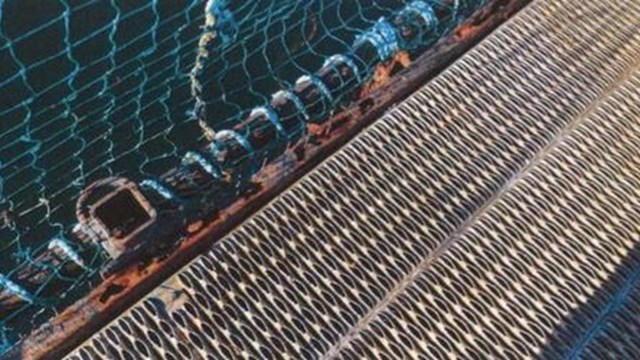
News & Views
Flaws found in Cooke Aquaculture’s other WA farm
Cooke Aquaculture received the green light last week to transfer 1 million juvenile Atlantic salmon to the company’s site in Rich Passage, but the Washington State Department of Natural Resources now says it has found flaws in those net pens.
October 10, 2017 By Liza Mayer
 A state inspection found "severe" corrosion on structures at Cooke Aquaculture's Rich Passage facilities Cooke Aquaculture received the green light last week to transfer 1 million juvenile Atlantic salmon to the company’s site in Rich Passage
A state inspection found "severe" corrosion on structures at Cooke Aquaculture's Rich Passage facilities Cooke Aquaculture received the green light last week to transfer 1 million juvenile Atlantic salmon to the company’s site in Rich PassageAn inspection contracted by DNR found that some of the surface structures of the Rich Passage net pens on Bainbridge Island, Washington fail to meet the standard, the agency said in a statement. Specifically, inspectors found a hole in the netting and severe corrosion on several components of the facility’s above-water infrastructure, it said.
DNR, in a letter of default issued to Cooke on October 9, is giving the company 60 days to fix the flaws. The company could lose its lease on the state-owned site if repairs are not done within the deadline, the letter stated.
“Given the failure of the Cypress Island facility, we have to be extra vigilant in making sure Cooke’s other existing aquaculture facilities are structurally sound,” said Commissioner of Public Lands Hilary Franz. “We cannot tolerate any risk that more Atlantic salmon will be released in Washington’s waters.”
Just last week, the Washington Department of Fish and Wildlife issued a permit to Cooke that allows the company to transport about 1 million juvenile Atlantic salmon to the Rich Passage farm, from a hatchery near Rochester.
Print this page





